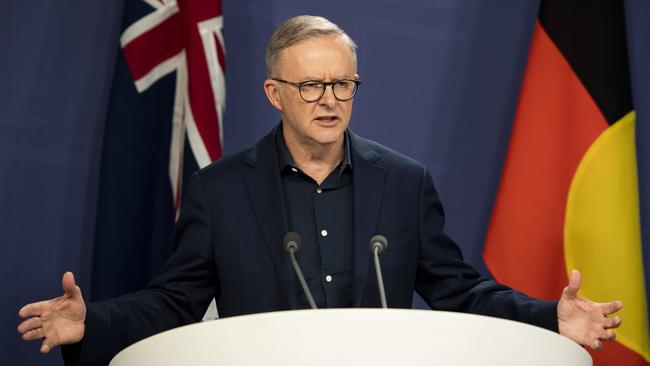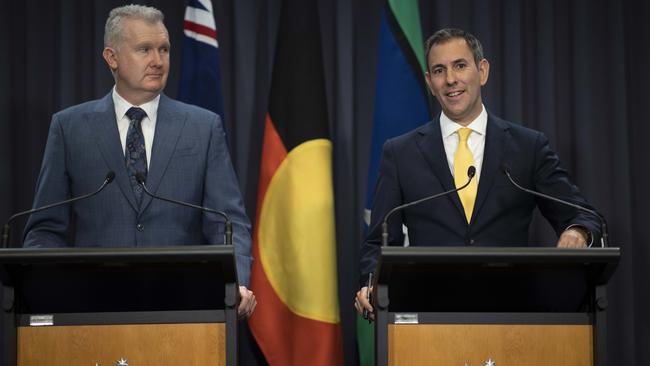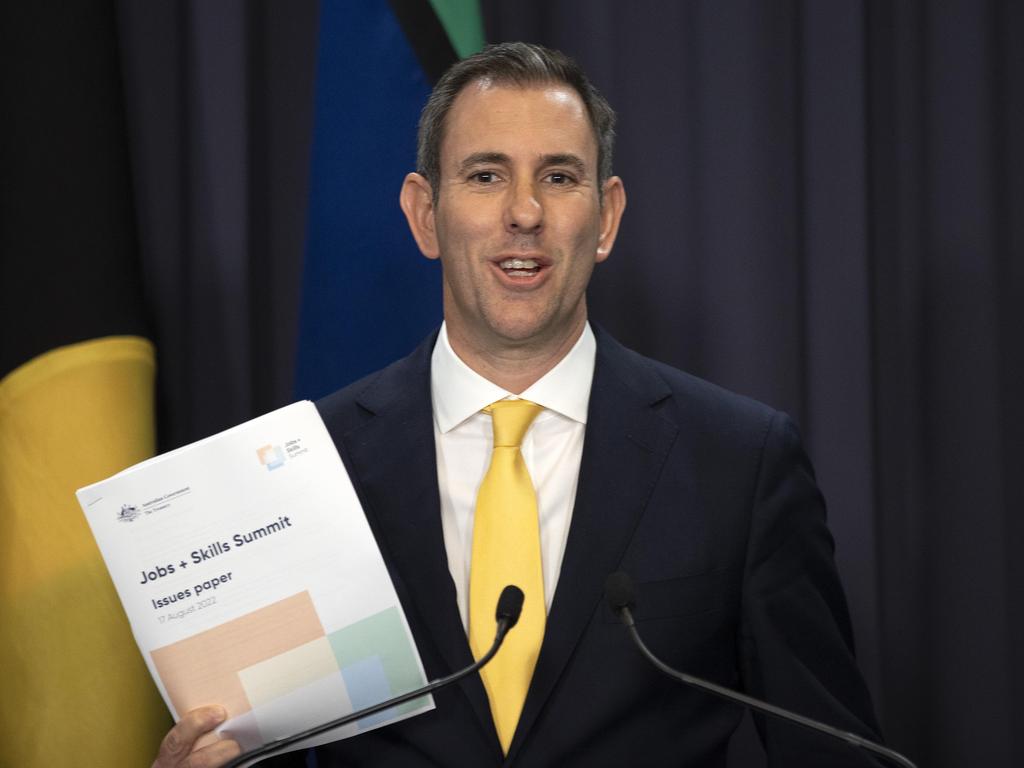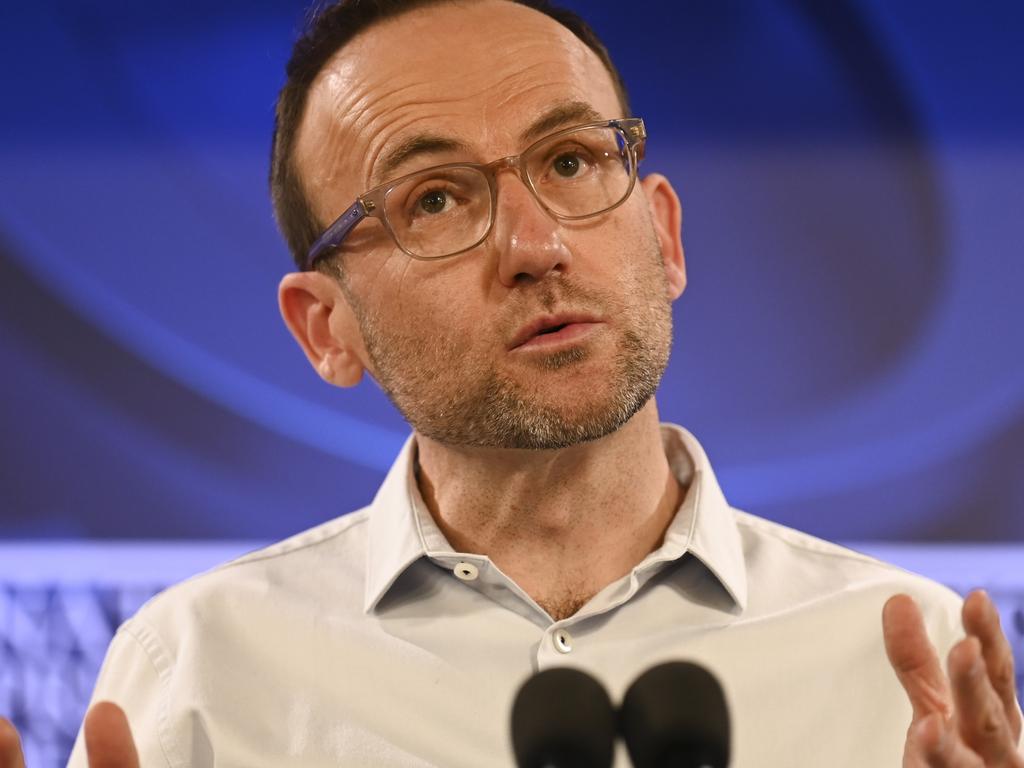
Albanese has added to the anticipated royal commission into the robo-debt scheme a special inquiry into former PM Scott Morrison. ScoMo has earned a place in the book of bad bosses by keeping cabinet in the dark about his special interest in ministerial title acquisitions, but his actions were legal and constitutionally valid. Inquiries and royal commissions might give the rookie PM an air of authority, but they will not feed the millions facing cost-of-living crises, reduce inflation or create conditions conducive to national prosperity.
Labor is playing for time and praying for a miracle because the economic forecast is grim. Finance Minister Katy Gallagher reported in June that government net debt was $631.5bn. Labor is desperately seeking solutions and betting on the Jobs and Skills Summit to reap dividends. However, Albanese declared the summit a success before it began, which hardly augurs well for substantive outcomes. Like Davos, the annual globalist talkfest with an inflated reputation for social justice, the summit is a heady mix of high earners beating a path to the moral high ground. If it follows the Davos model, every idea for raising productivity will be crushed by a well-heeled stampede for taxpayer-funded schemes whose forecast profits lie somewhere over the rainbow.
The business in town that makes big money for broke Australia is mining, but the government will be hard pressed to concede the degree to which the national economic recovery depends on fossil fuel industries. High commodity prices have shielded Australia from the most acute pain suffered by other Western economies in the post-Covid climate, but they are unsustainable. As commodity prices decline in the months ahead and interest rates rise, consumer confidence will fall. Businesses will be left with less income and higher overheads courtesy of Labor and union-driven wage increases coupled with staff shortages and increased costs of materials.
Treasurer Jim Chalmers has inherited a poisoned chalice with hundreds of billions in debt and years of forecast deficits. Understandably, he is playing down the prospect of an easy fix or quick exit from economic pain, saying: “The defining challenges on our economy are skyrocketing inflation, rising interest rates, a fall in real wages.” Yet Labor made a campaign commitment to reducing energy bills while aware of the economic forecast and it has already reneged on the deal. Making false promises to win elections is a well-worn bipartisan tactic, but voters have long memories.

Chalmers needs to show Labor can be trusted and it will take a heroic effort. He has forecast inflation to rise to 7.75 per cent by the end of the year and said real wages will not rise until 2024. In July, he conceded “households won’t feel the benefits of higher wages while inflation eats up wage increases”.
The forecast of a significant economic slowdown has not dented union enthusiasm for pushing up wages and taxes while punishing employers in vulnerable sectors. The ACTU is proposing a new model that will target smaller enterprises by encouraging employees from different businesses to engage in joint bargaining and industrial action. While Albanese and Chalmers have not committed to the proposal ahead of the jobs summit, the Treasurer told the ABC he believes the current enterprise bargaining system is “broken”. The minimum wage increases imposed by Labor have already added to the financial woes of many small and family-owned businesses. But Workplace Relations Minister Tony Burke has also voiced support for the ACTU idea dubbed multi-employer bargaining.
Opposition Leader Peter Dutton described union attempts to control small-business owners as a “throwback from the ’70s”. He said: “I want to see good outcomes, but the proposals for increased taxes, for a tightening of the industrial relations scheme … surely is not something that Mr Albanese can entertain.”
Australian Industry Group chief executive Innes Willox criticised the ACTU for proposing industrial relations reform that would reduce the freedom of employers to negotiate with employees based on the highly variable conditions needs of each workplace. Small businesses tend to run on tighter margins and require far greater flexibility to stay afloat in tough times than governments and publicly funded organisations that are protected by ongoing taxpayer funding.
In his maiden speech, Albanese decried economic rationalism and stated “governments must look beyond the bottom line in the monthly and annual accounts”. He described the contraction of the public sector as a “disturbing trend” and criticised conservative constraints on government spending. He credited the Keating government for creating new jobs while improving real wages and protecting those in need. Albanese’s maiden speech was given after the 1996 election that ended Labor’s winning streak and ushered in a four-term Liberal Coalition government under John Howard. Needless to say, Howard held a markedly differently view of Labor’s economic record. He charted a path to national productivity by prioritising debt reduction and industrial relations reform in the interest of small-business owners.
Labor vowed to govern from the centre in the national interest, but the centre will not hold if unions have the power to dictate the terms of economic reform.







Labor is failing to make the transition from opposition to governing Australia. Its pursuit of the former government via reviews, a special inquiry and royal commission are a poor substitute for an economic plan. Rising interest rates coupled with high prices for basic necessities such as fresh food and petrol, housing and energy cannot be solved by chasing the ghosts of governments past. Anthony Albanese needs to recall the priorities of a prime minister are vastly different to those of an opposition leader.